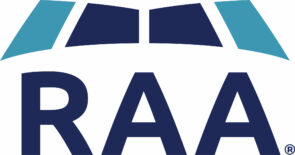PROTECT YOUR IMPORTANT DOCUMENTS FROM A NATURAL DISASTER IN 3 STEPS
- Posted by Brad Bridgewater
- On September 17, 2019
Natural disasters such as floods, fires, and hurricanes can cause devastating impacts to your life, family, home, and communities. Your best strategy to protect the things you love is to prepare for the worst before it strikes. Many people include steps such as gathering supplies, identifying evacuation routes, and creating a network to get in touch with loved ones in their disaster plan, but few often consider the importance of protecting legal documents. Here are three tips to help you safeguard your documents.
1. TAKE THE TIME NOW TO GATHER YOUR IMPORTANT DOCUMENTS TOGETHER SO YOU ARE PREPARED
Use the following as a checklist for documents you may want to include. Some documents may not be applicable to all. If you aren’t able or don’t have time to gather all your documents before the storm, then focus on the most important and most difficult documents to replace.



2. STORE YOUR MOST IMPORTANT DOCUMENTS IN A SECURE LOCATION
In general, there are two options for storing your documents: in your house or a secure location outside of your house.
How to store documents at home
Pack your important documents, copies of documents stored elsewhere, and your safety deposit box key (if applicable) in a sealed plastic bag and store it in a lockable box that is both fireproof and waterproof. This will ensure you can quickly grab the documents if you need to evacuate and will keep the documents dry.
Other secure locations
You can store documents outside of your home such as in a safety deposit box or your attorney’s office; however, if a disaster hits you, your financial institution and attorney will likely have been hit as well if they are local. For greater safety, you can scan documents into digital files and store them electronically.
3. ROUTINELY BACK-UP ELECTRONIC FILES
Storing documents electronically reduces the risk of damage or loss from a natural disaster, but it’s just as critical to protect access to your electronic files. Make sure your computers and laptops are located away from windows and above flood levels. Back-up your electronic documents on a routine-basis and use a subscription service to securely store your files online.
Whether you decide to store sensitive documents on a USB drive, your hard drive, or using a online (cloud-based) service, we recommend using some form of encryption. This helps protect your files from unauthorized users and cyber criminals.
GIVE YOURSELF PEACE-OF-MIND BY PREPARING AHEAD OF TIME
The list of documents you need to safeguard is long, but doing so will reduce the stress and hassle after a natural disaster. In addition to protecting your documents, you should consider establishing or updating your estate plan. Although we never expect the worst, having an estate plan helps ensure your loved ones are protected and provides them a clear path forward during one of life’s most difficult moments.
Whether or not you already have an estate plan in place, we offer a complimentary review to help you get started creating or updating your plan. While we aren’t attorneys, we can provide guidance on the process and documents you may need, based on your unique situation and goals for your estate. We also offer a Planning Ahead Organizer to help you keep track of important information about your accounts and document locations. For help creating your estate plan or updating a plan you already have in place, request to speak with an advisor at RAA.
Disclaimer: This blog is intended for informational purposes only and should not be construed as individual investment advice. Actual recommendations are provided by RAA following consultation and are custom-tailored to each investor’s unique needs and circumstances. The information contained herein is from sources believed to be accurate and reliable. However, RAA accepts no legal responsibility for any errors or omissions. Investments in stocks, bonds, and mutual funds may increase or decrease in value. Past performance is no guarantee of future results. Any of the charts and graphs included in this blog are not recommendations for the purchase and sale of any security.



0 Comments